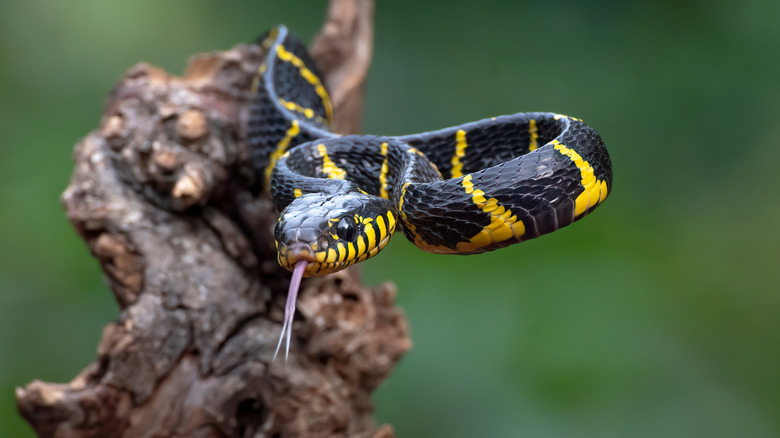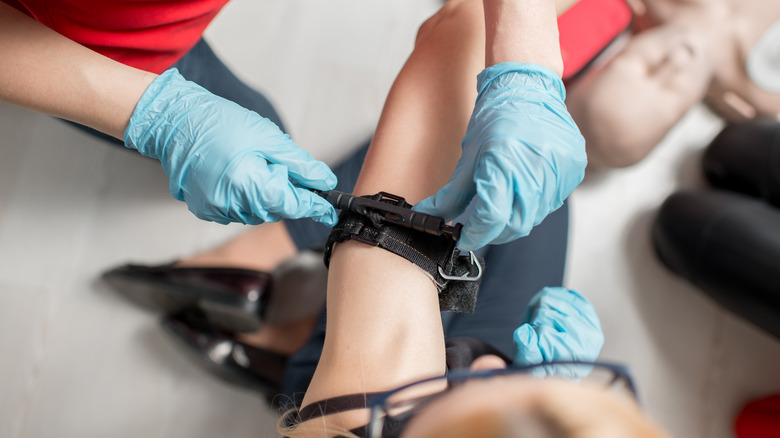One Of The Absolute Worst Safety Tips You Should Avoid If You've Been Bitten By A Venomous Snake
If you're the outdoorsy type and like to go camping or hiking, there are a lot of things you must be aware of. Aside from knowing what you should bring to make your adventure quick and easy, you'll also have to look out for wildlife, such as snakes. While most snakes you'll encounter are harmless, a bite from a venomous species can turn dangerous very quickly and how you immediately treat it matters. To keep the venom from spreading, some people may believe that making a tourniquet to wrap tightly around the area will help. However, according to NPR, wildlife experts say to avoid this as wrapping a tourniquet around the bite can keep the venom in one spot and cause permanent disfigurement or have long-term consequences.
The application of a tourniquet can be lifesaving for many injuries — including bites from other animals — but when it comes to certain snakes, toxins are involved. Instead, the best course of action it to seek emergency medical help right away by calling 9-1-1, try to remain calm (which might be easier said than done) and don't move the affected area and keep it below your heart (via District Gondia).
What to do and not do when you get a snake bite
According to research, there are a lot of snake-infested lakes in America, as well as wooded areas, especially in the south and the Midwest. If you don't know where to look, encounters with a snake can happen unexpectedly and knowing what not to do in the event of a snake bite is just as important as knowing what to do. Aside from not using a tourniquet, the Mayo Clinic says you should not apply ice or take pain relieving medication, such as Advil. Ice can lead to tissue damage (via Poplar Bluff Regional Medical Center) and pain relieving medication can increase your risk of bleeding.
Other than calling for emergency services, other things you should do if bitten by a snake is clean the wound with soap and water. It is also a good idea to loosen tight clothing and remove any jewelry near the area. The key here is to reduce swelling as much as possible. Following the proper first aid steps could be the difference between a minor injury and a life-threatening emergency. And remember, try to keep calm.
Headed to the west coast? You should still be on the lookout for snakes during your outdoor adventure. Check out our feature on the snake-infested waters worth knowing about in Oregon.

